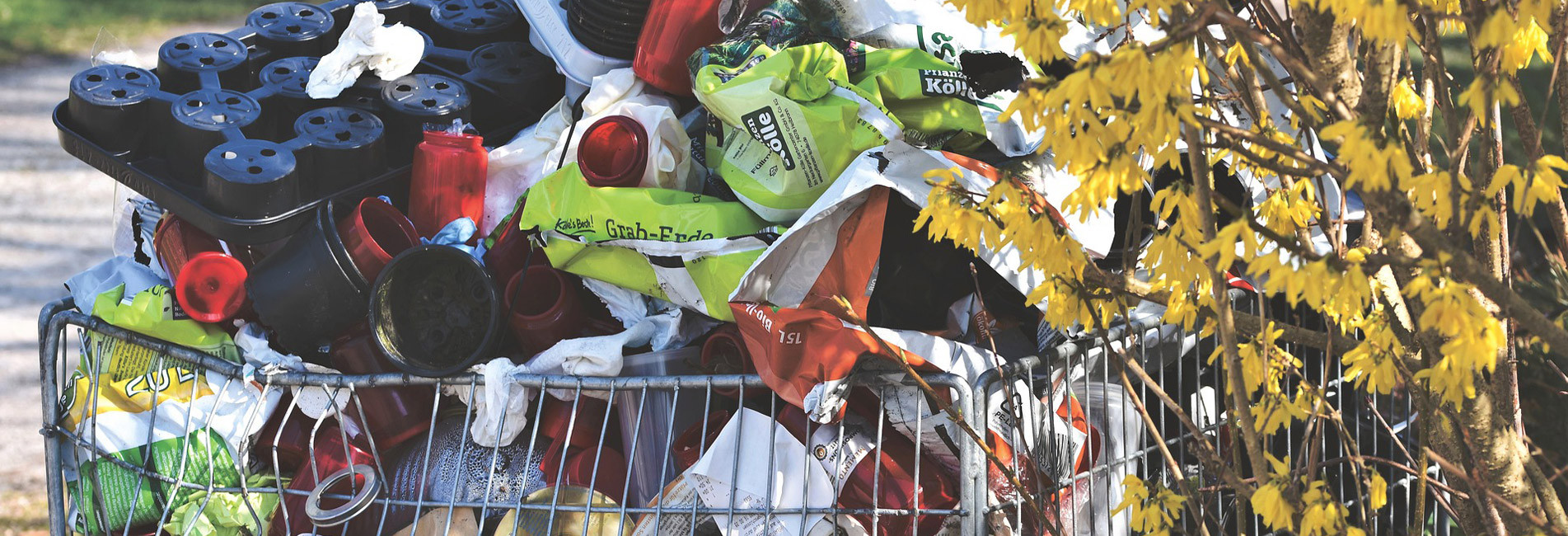Fly-Tipping & How To Deter It
Posted on Friday 3rd July 2020Fly-tipping itself is described as the illegal dumping of waste onto land which does not have a licence to accept it. The term “on the fly” was used in the late 1800s to describe something on the move – it then became coupled with the word tipping for the act of tipping, hence the term fly-tipping.
Dumping waste is a criminal offence in the UK, anyone found guilty of the crime could face a fine or a fixed penalty notice of £400. Under current UK law the maximum fine for fly-tipping is £50,000 and/or a 5-year prison sentence.
Public highways are typically the most common place for fly-tipping to occur, with the majority being a van load of household waste, with the somewhat stereotypical image of rubbish bags and an unwanted mattress at the side of the road. However, there have been an increasing number of incidents involving more sophisticated large scale coordinated dumping of large quantities of waste and rubble, in some cases material of a hazardous nature, onto private land and in areas of natural beauty.
National Farmer’s Union President Minettes Batters stated: “Fly-tipping really has become the scourge of the countryside. The rubbish can be costly and time consuming for farmers and landowners to remove, it’s dangerous to human health, harmful to wildlife and livestock and in some cases, fly-tipped waste pollutes watercourses and contaminates land”.
COVID-19 and Fly-Tipping Increase
As a result of the COVID-19 pandemic many household tips and recycling industries have been forced to temporarily close due to staff shortages and social distancing regulations, resulting in a rapid increase in the amount of fly-tipping. Local authorities across the UK have been alarmed at a wave of waste springing up over the countryside including areas of natural beauty.
Why Does Fly-Tipping Exist?
In the majority of cases, fly-tipping is carried out for either financial gain or saving. Unlicensed outfits advertising cheap waste disposal are often in fact, fly-tipping. Although in some cases it is due to pure laziness and a lack of nearby recycling or waste disposable facilities.
What Happens When People Fly-Tip on Private Land?
Under current UK laws, if someone dumps rubbish onto private property, it is the landowner’s responsibility to dispose of the waste – which in many cases leaves them with substantial costs to remove copious amounts of illegally dumped rubbish.
What to Do If Waste Is Dumped on Your Land
The landowner should always report the incident to the local authorities - however, it is ultimately their responsibility to dispose of the waste. Any costs incurred may later be recuperated if the local authorities are able to investigate and successfully prosecute. It is important ensure that a registered waste carrier is employed to remove the rubbish and to keep detailed records of disposal costs as they can be recovered following successful prosecution.
When dealing with any waste, always exercise caution and do not open any sealed bags as the contents may contain dangerous material.
Prevention
Some private land-owners and local authorities find putting up signs a useful deterrent, another solution is the installation of CCTV which may serve as a deterrent as well as helping to identify criminals and their vehicles in the event of investigate – increasing the likelihood of a successful prosecution.
Deployable CCTV Kits
Offenders are often familiar with quiet rural areas and are often aware of the location of fixed CCTV systems – however, they may not be familiar with deployable CCTV kits. These do not require the physical infrastructure of permanent CCTV systems and can be extremely useful in helping to capture video footage identifying individuals and car registrations.
Such kits are highly adaptable and may be used discreetly to catch unsuspecting fly-tippers or overtly as a deterrent. They also offer an ideal solution in scenarios where there isn’t time for a full CCTV installation, providing a flexible type of system which allows the customer to customise the system to suit their own unique requirements.
System features varying considerably and can be adapted to suit a wide range of situations by offering many different features:
- Size – systems can be as small as a pack of playing cards - smaller camera heads are less than 5mm by 40mm in size.
- Remote – camera heads can be placed up to 100 metres away from the recorder.
- Power – In locations where mains power is difficult to access, light-weight and safe lithium-ion battery packs can power some systems for over a week.
- Quality – HD options are available in even the smallest pin-hole cameras providing outstanding image clarity.
- Covert – Discreet systems can be created to fit covertly into any environment with tiny discreet camera heads built into everyday objects.
- Flexible solutions – Thermal imagery, IR night vision, number plate detection, to deployable emergency remote guarding systems.
Hiring Deployable CCTV Systems
In addition to our range of installation services available for purchase, O.R.P Surveillance also offer a hiring service for deployable CCTV systems. Hiring is available on a monthly contract which couldn’t be easier – customers simply get in touch to let us know their exact requirements, we will then issue a quote and can install the deployable at their chosen location.
O.R.P Surveillance Systems
O.R.P Surveillance is a Shropshire-based organisation specialising in the design, installation and maintenance of CCTV and security systems which cater for a wide variety of clients – from smaller enterprises to multi-national organisations.
For more information on how our CCTV systems can protect you against fly-tipping, get in touch today.

